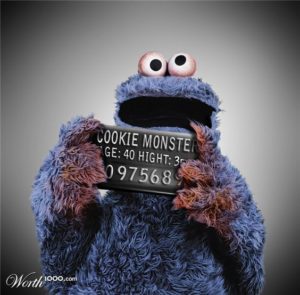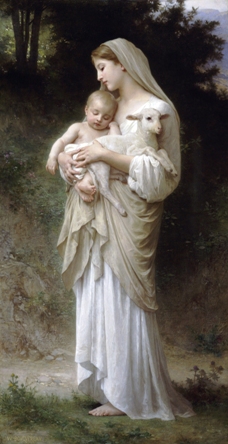
I have arrived at the last day of 2017 with little aplomb. I went to bed early. I woke up later than usual. I went to church. And I’m currently listening to my youngest child read a story. In short, just another Sunday.
The last day of the year, people tend to celebrate “New Year’s Eve.” They reflect on what happened and what they want to change in the “new year”. There is usually special food and drink and many people stay up until midnight to imbibe. I’m a morning person and evenings are difficult for me, but I’m going to try, though I’m not really sure why we do this. The sun will complete its rotation whether I stay up to watch or not.
There is, of course, the “new year’s resolution” that tends to celebrate the course correction we want to make. I’m usually working on the things I don’t like about myself daily so the NYR isn’t a focus of mine. Still, I can appreciate that we have encountered a number of events that I wouldn’t care to repeat. Mainly, I want to celebrate each day I’m alive because I am all too aware that I may not be here tomorrow.
One of the resolutions I could make, if I was making any, would be to listen more closely to those who live with me. This morning I asked my husband why we wish each other a “Happy New Year”, considering the word “happy” stems from the word “happenstance” which means “a chance circumstance”. All things considered, I’d rather make a more intentional wish for people in the New Year than, “I hope you have more favorable chance circumstances.” My husband said, “Margaret, it means fun. You need to have more fun.” I said, “You know, you’re probably right!”
This morning I rode the elliptical machine and read one of my favorite authors, John Owen. He can be particularly challenging to understand, but when I focus I learn more about myself reading his works than any other author I have read—which is the point. How can I correct those issues if I don’t examine myself? Today I contemplated my will in response to the conception of sin in my heart (James 1:15). I’m still fighting with my stubborn will and I suppose I always will be.
 A big focus of mine in 2017 has been learning the 10 commandments and trying to keep them. I failed many times over, but each time found incredible joy in knowing that the grace of God has appeared in the form of Jesus who made atonement for each time I failed. When I consider him suffering for my willful failures, I weep. I look forward to the day when I won’t break his heart with my sin any longer.
A big focus of mine in 2017 has been learning the 10 commandments and trying to keep them. I failed many times over, but each time found incredible joy in knowing that the grace of God has appeared in the form of Jesus who made atonement for each time I failed. When I consider him suffering for my willful failures, I weep. I look forward to the day when I won’t break his heart with my sin any longer.
Yesterday I had the pleasure to visit with my grandpa for a few hours in the rehab facility where he is recuperating after a bout of bacterial pneumonia, kidney failure, and an infection in his blood. He is 86 years old. His arms are swollen and he can barely lift them, but his faculties are sharp and we discussed religion for a time.
 Rehab facilities are sobering places. He talked to me about the people in wheelchairs who are unable to perform basic self-care activities. He openly wondered why they must live and suffer. He contemplated his own death and recounted to me the various blessings he is the benefactor of in his relatively short life. He came from very humble circumstances and now owns and lives on a 180+ acre farm. In short, he has prospered and feels extremely blessed.
Rehab facilities are sobering places. He talked to me about the people in wheelchairs who are unable to perform basic self-care activities. He openly wondered why they must live and suffer. He contemplated his own death and recounted to me the various blessings he is the benefactor of in his relatively short life. He came from very humble circumstances and now owns and lives on a 180+ acre farm. In short, he has prospered and feels extremely blessed.
He has had several near death experiences. “They have recited last rites over me several times,” he recounted. He was accidentally shot in the side when he was a boy. He fell off a cliff as an old man and cracked his head so hard spinal fluid leaked out. He said, “St. Peter doesn’t want me yet.” I replied, “God is giving you more time.” He also said all the priests and pastors had been visiting his room—one for every persuasion, even some women. “I guess they thought I was a goner.”
He is staunchly Catholic but has read much of the Old Testament and says “reading too much of the Bible can make you crazy!” By that he meant it begs more questions from the reader than it provides answers for. But he also confessed that he never read the New Testament and I encouraged him to do so. I personally feel like the Bible answers most of my questions and it gives me great comfort. I sure enjoyed spending time with him. I even gave him more cookies. The food in the rehab center is terrible. He said they made biscuits and gravy but there was no meat in the gravy. “Terrible stuff,” he said. “I couldn’t eat it.”
Tomorrow is 2018 and just another day in my opinion. I’ll get up, workout, read a book, and probably get annoyed with my children. Such is the luxury of American life. Today I’m counting my blessings for I surely have much to be thankful for. The too many cookies I consumed recently means I’m not starving but that I’ll have to work harder to re-break the sugar addiction in the next few weeks. I do resolve NOT to make Christmas cookies next year. This obsession with cookies is ridiculous. Colder weather means my friendly outside adventures will be more introspective in nature and filled with lots of step aerobics, high impact cardio and elliptical machine of doom (pure torture!). Shorter and colder days mean I’ll be longing for summer months and working hard to fight against the SAD (seasonal affective disorder) that plagues me in winter. But while I’m thinking about changes I’d like to make, I do resolve to love more and better, care for others more than I care for myself, and keep pressing forward to learn discipline. I’m still on the journey and doing my best to enjoy the scenery.





